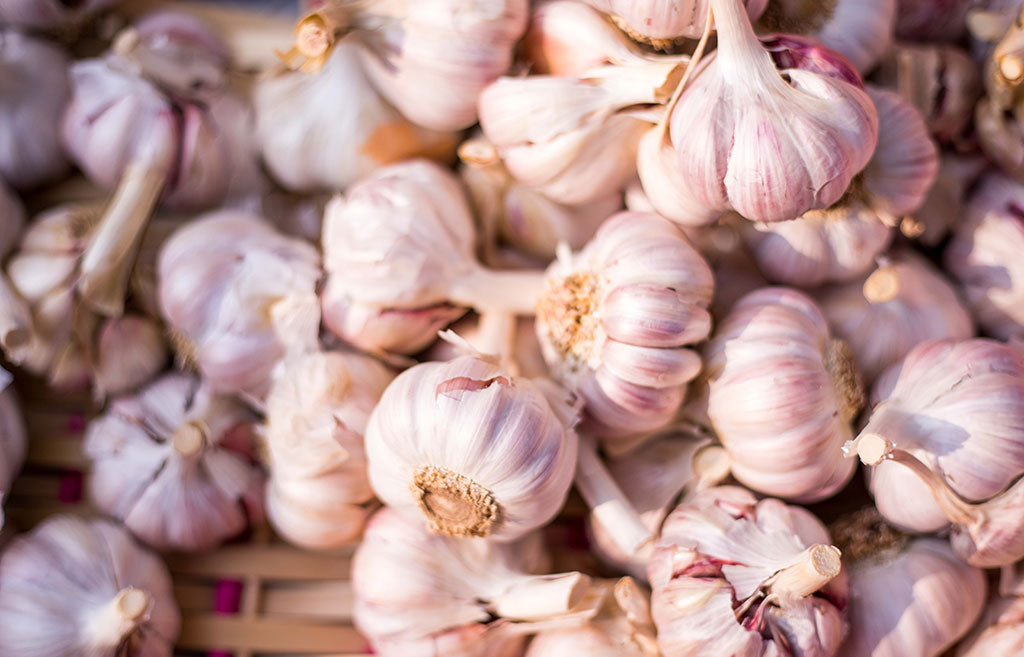Nutrient Focus: Prebiotics

What are prebiotics?
Most people have heard of probiotics, the 'good' or 'friendly' bacteria found in certain foods (mostly fermented) or supplements. They play an important role in gut health and are known to be associated with countless health benefits throughout the body. But what are prebiotics and what do they do?
Prebiotics are what our friendly bacteria like to eat - fuel for the good bacteria. This helps them to proliferate, which in turn promotes a healthy and balanced gut microbiome and therefore good general health. Prebiotics are a type of indigestible fibre that is found in food. This type of fibre passes undigested through the digestive tract until it reaches the colon and is used by the good bacteria as food.
What are the benefits of prebiotics?
Together with probiotic bacteria, prebiotics have been shown to play a role in supporting our health including but not limited to:
- Increasing our numbers of Bifidobacteria and Lactobacilli (two very beneficial species of bacteria within the gut).
- Helping produce beneficial metabolites including butyric acid, a substance which protects the health of the intestinal lining
- Reducing protein fermentation in the gut and improving digestion
- Helping decrease disease-causing bacteria populations
- Protecting against allergies and supporting a healthy immune response
- Supporting a stronger and better functioning immune system
How to ingest prebiotics
Prebiotics can be found abundantly in our food. They are normally found in certain carbohydrates, mostly from fibre in fruit, vegetables and starches that we can’t properly digest. Although every prebiotic is a fibre, not every fibre is a prebiotic.
Prebiotics can be taken in supplement form or found in many common foods including:
- onions
- leeks
- garlic
- asparagus
- Jerusalem artichoke
- chicory root
- bananas
- berries
- green vegetables
- tomatoes
- oats
- flaxseed
- wheat
- barley
- lentils
- black beans
- kidney beans
- chickpeas

Do we need to supplement a prebiotic if we are eating probiotic rich foods?
For most individuals, it's normally only necessary to supplement with prebiotics if not enough prebiotic-rich foods are included in the diet. However, there are some specific cases where a medical practitioner may deem supplementation to be beneficial. It’s important to note that if you do choose to supplement with prebiotics, that your gut may take a while to adjust to them (you could bloat for example or be a little gassy). This should dissapate in time, but if it doesn't improve within a few weeks then it would be advisable to speak to your doctor, nutritional therapist or dietician.
There are so many prebiotic and probiotic foods we can easily incorporate onto our plate, so be sure to get a good mix of them to help keep your gut happy and healthy!
If you enjoyed reading this article, you might like What are the benefits of Omega 3 fish oil?.
References:
Slavin J. Fiber and prebiotics: mechanisms and health benefits. Nutrients. 2013 Apr 22;5(4):1417-35. doi: 10.3390/nu5041417. Review. PubMed PMID: 23609775;
PubMed Central PMCID: PMC3705355.
Markowiak P, Śliżewska K. Effects of Probiotics, Prebiotics, and Synbiotics on Human Health. Nutrients. 2017;9(9):1021. doi:10.3390/nu9091021. [Accessed: 1 July 2018]
Justin L Carlson, Jennifer M Erickson, Beate B Lloyd, Joanne L Slavin; Health Effects and Sources of Prebiotic Dietary Fiber, Current Developments in Nutrition, Volume 2, Issue 3, 1 March 2018, nzy005, https://doi.org/10.1093/cdn/nzy005. [Accessed 11 July 2018]
Crittenden, R.; Playne, M.J.NutritionNews. Factsandfunctionsofprebiotics, probiotics and synbiotics. In Handbook of Probiotics and Prebiotics; Lee, Y.K., Salminen, S., Eds.; Wiley-Interscience, Kansas State University: Hoboken, NJ, USA; Manhattan, KS, USA, 2008; pp. 535–582. [Accessed 11 July 2018]



 Tara
Tara





